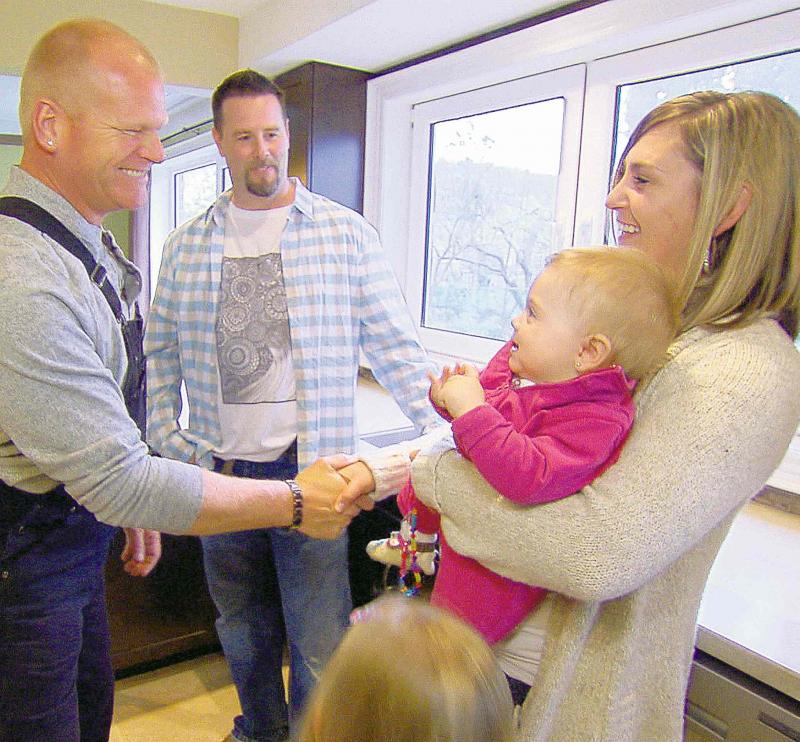It's the new year, and many homeowners are thinking about renovating some part of their home. The goal of any renovation is to add value, whether it's in the materials and finishes going into the home or for improvements to the structure, mechanics or physical comfort.
Whether it's a kitchen, bathroom, basement, backyard or all of the above, plan ahead, know your needs and keep communication clear between you and your contractor. Do that, and your renovation should go smoothly, as long as you hire the right pros.
The most important step is to plan it right, so here are a few tips from someone who knows a thing or two about doing a renovation the right way.
Make decisions before you start. I've said it a million times: It takes longer to plan a renovation than to do it. The more time you spend making decisions before construction starts, the less time will be spent on actual labour, which helps control costs and work schedules.
Find qualified pros. You need to do your own research. Don't rely on the advice of friends and family alone. Get at least 10 to 20 references for any contractor you're thinking of hiring -- the more the better -- and go see their work and speak to the homeowners. Don't just look at jobs they just finished, either. Look at jobs they did five or 10 years ago. These are the jobs that will tell you the durability of their work. And check out job sites in progress, both during and after hours, so you get a real understanding of how work is carried out, how orderly the job site is and how well it's cleaned up.
Do a background check. Bad contractors cover their tracks by changing company names. Do a corporate check with the Better Business Bureau and make sure they have a valid business and/or general contractor licence and insurance.
Get a detailed contract. The more detail the better. It should describe every task that will be completed and include buffers for the unexpected, such as not getting certain items or materials by a certain date or not getting the mechanics done by a certain time. This is also the time to determine who is responsible for which permits.
Set up a payment schedule tied to project milestones. The best payment schedules are tied to specific project milestones, usually rough-in, drywall and completed, because it keeps the renovation moving. So your contractor completes the rough-in stage, a city inspector comes in and approves all the work -- because you got the proper permits, of course -- and then you hand over the first payment to your contractor. Only then does your contractor move on to the next stage of the renovation, and you do this for every stage.
Discuss changes. Every change you make costs time and money. Talk to your contractor to make sure it's worth the expense and potential delays.
Know the work schedule. That includes the daily work hours. If your contractor says they work from 9 to 4, it's easy to keep track. If no one shows until the afternoon a couple of days in a row, contact your contractor immediately and ask why. These could be first signs your job is falling off the rails, but it's soon enough you can get it back on track.
Should you stay or should you go? Living through major construction is never easy. I always recommend homeowners find another place to stay during a reno, especially when we're gutting an entire floor or if it involves the water, electricity and/or furnace to be shut off for extended periods of time. (Renovations kick up a lot of dust, which you don't want ending up in your HVAC system. That's why it's a good idea to shut it off during a renovation.)
But deciding to stay home during a reno comes down to safety, time, comfort and convenience. If you know toxins such as asbestos, mould or lead paint will need to be removed, you have to be out of the house until everything is clear and clean. Same thing if spray foam is being installed or certain solvents are being used.
Plus, if you decide to stay, your contractor and their crew will be doing a lot of cleaning every day, which you will have to pay for. All that cleaning also wastes time they could use to work on your reno, so it slows down the job.
If you're planning a reno in 2014, take your time to do it right. And you might want to start sweet-talking anyone who can offer a free place to stay while the work gets done.
-- Postmedia Network Inc. 2014
Catch Mike Holmes on Holmes Makes It Right, Tuesdays at 9 p.m. on HGTV. For more information, visit hgtv.ca. For more information on home renovations, visit makeitright.ca.




